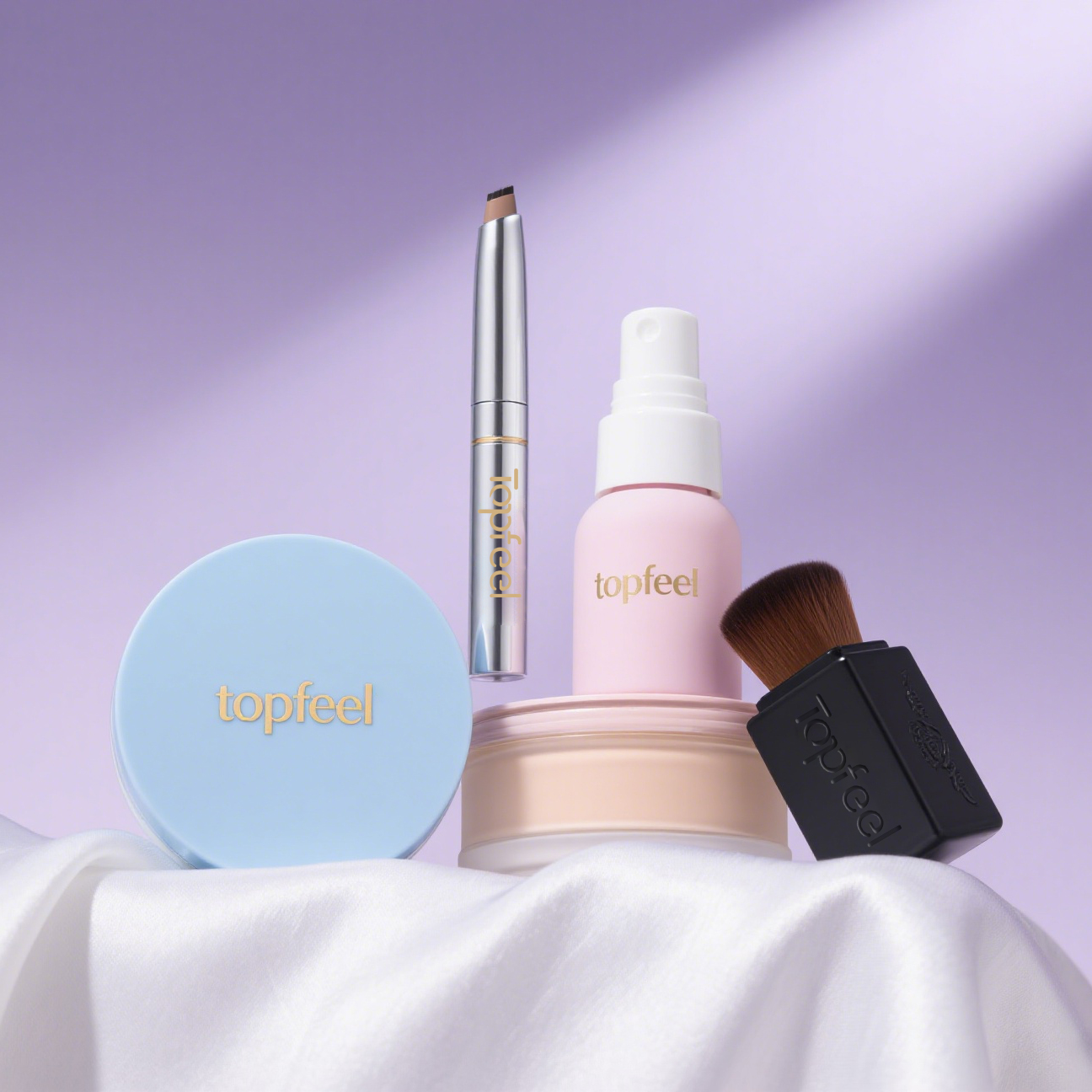Understanding Private Label Cosmetics: A Comprehensive Guide
Introduction to Private Label Cosmetics
In the ever-evolving beauty industry, private label cosmetics have emerged as a game-changer for retailers and entrepreneurs alike. But what exactly are private label cosmetics and how do they differ from traditional branding?
What Are Private Label Cosmetics?
Private label cosmetics, also known as “white label” products, refer to skincare, hair care, makeup, and bath and body items that are manufactured or packaged for sale under the name of a retailer rather than that of the manufacturer. This allows merchants to imprint their own branding on the packaging without engaging in plagiarization.
The Basics of Private Label vs. Traditional Branding
Unlike traditional branding where companies develop products from scratch with their branding, private label cosmetics involve taking existing products made by others and rebranding them. Retailers have significant input in the production process of private label cosmetics, enabling them to customize the products to meet their specific requirements.
The Rise of Private Label in the Beauty Industry
The beauty industry has witnessed a remarkable surge in the popularity of private label cosmetics. Retailers are increasingly drawn to this business model due to its cost-effectiveness, flexibility, and potential for higher profit margins. As consumer preferences continue to evolve, private labeling offers brands the agility to adapt quickly to market trends and consumer demands.
The Benefits of Going Private Label
As retailers and entrepreneurs navigate the competitive landscape of the beauty industry, embracing private label cosmetics offers a multitude of advantages that can significantly impact their bottom line.
Cost-Effectiveness and Profit Margins
One of the primary benefits of venturing into private label cosmetics is the potential for enhanced cost-effectiveness and improved profit margins. By collaborating with manufacturers to produce products under their own branding, retailers can bypass the hefty expenses associated with product development and formulation. This streamlined approach often translates to higher profitability, allowing businesses to allocate resources towards marketing initiatives and further product expansion.
Brand Customization and Flexibility
Tailoring Products to Your Brand’s Vision: Embracing private label cosmetics empowers retailers to tailor products according to their unique brand vision. From selecting specific ingredients to customizing packaging designs, this level of flexibility enables businesses to curate a product range that resonates with their target audience. Whether it’s formulating cruelty-free skincare solutions or crafting vibrant makeup palettes, the ability to customize products fosters brand authenticity and strengthens consumer loyalty.
Speed to Market
In an industry driven by rapidly evolving trends and consumer preferences, speed to market is a crucial factor in maintaining a competitive edge. Private label cosmetics streamline the product development process, allowing retailers to swiftly introduce new offerings in response to emerging trends. This agility not only enhances brand relevance but also positions businesses as trendsetters within the beauty landscape.
By harnessing the potential of private label cosmetics, retailers can elevate their brand identity, expand their product portfolio, and cultivate lasting connections with discerning consumers.
Key Considerations Before Starting Your Own Label
Before embarking on the journey of launching your own private label cosmetics line, it’s crucial to consider several key factors that can significantly impact the success and sustainability of your venture.
Choosing the Right Private Label Cosmetics Partner
Selecting the ideal private label cosmetics partner is a pivotal decision that warrants careful consideration. When evaluating potential partners, there are several factors to consider to ensure a seamless and mutually beneficial collaboration:
Manufacturing Capabilities: Assess the partner’s production capabilities, including their capacity, technology infrastructure, and adherence to quality standards. This ensures that they can meet your production requirements and maintain consistent product quality.
Customization Options: Look for a partner that offers a wide range of customization options for formulations, packaging, and branding. This level of flexibility allows you to create unique products tailored to your brand’s vision and market demands.
Regulatory Compliance: Verify that the partner complies with industry regulations and standards for product safety, labeling, and ingredient transparency. This is essential for maintaining consumer trust and ensuring legal compliance.
Reputation and Track Record: Research the partner’s reputation in the industry, including client testimonials, successful collaborations, and their track record for delivering high-quality products within stipulated timelines.
By carefully assessing these factors, you can establish a strong partnership with a private label cosmetics manufacturer who aligns with your brand values and business objectives.
Understanding Your Market and Audience
In-depth understanding of your target market and audience is fundamental to the success of your private label cosmetics venture. Conducting thorough market research enables you to gain valuable insights into consumer preferences, emerging trends, competitive landscape, and unmet needs within the beauty industry.
Key aspects of market research include:
Consumer Demographics: Analyze demographic data such as age groups, gender distribution, income levels, and geographical locations to identify specific consumer segments for targeted product offerings.
Trend Analysis: Stay abreast of evolving beauty trends, ingredient preferences, sustainability initiatives, and cultural influences shaping consumer behavior. This insight guides product development aligned with current market demands.
Competitor Analysis: Evaluate existing private label cosmeceuticals brands in your niche to identify gaps in the market or areas where you can differentiate your products effectively.
A comprehensive understanding of your market landscape empowers you to develop compelling product offerings that resonate with consumers while differentiating your brand from competitors.
Regulatory Compliance and Quality Assurance
Ensuring regulatory compliance and stringent quality assurance measures are integral components of launching a successful private label cosmetics line. Prioritize partnering with manufacturers who uphold rigorous quality control protocols throughout the production process. Additionally, conduct thorough due diligence regarding regulatory requirements pertaining to product labeling, ingredient safety assessments, and adherence to Good Manufacturing Practices (GMP). By prioritizing regulatory compliance and quality assurance, you demonstrate a commitment to consumer safety and build trust in your brand’s integrity. Adhering to these standards also mitigates potential risks associated with non-compliance and fosters credibility within the beauty industry.
How to Start Your Own Private Label Cosmetics Line
Venturing into the realm of private label cosmetics entails a strategic approach to ensure the successful launch and sustained growth of your brand. Here are essential steps to guide you through the process:
Step 1: Define Your Brand and Target Audience
Before delving into product selection and formulation, it’s imperative to define your brand identity and gain a comprehensive understanding of your target audience. This involves crafting a compelling brand story that encapsulates your values, mission, and unique selling proposition (USP). By identifying your target demographic, including their preferences, lifestyle, and purchasing behavior, you can tailor your product offerings to resonate with their needs.
Step 2: Select Your Products and Packaging
Skincare Private Label and Private Label Makeup Options
When curating your private label cosmetics line, consider an array of options ranging from skincare private label solutions to private label makeup products. Embrace the versatility of skincare offerings such as cleansers, serums, moisturizers, and masks tailored to address diverse skin concerns. Additionally, explore the realm of private label vegan makeup, catering to the growing demand for cruelty-free and sustainable beauty solutions.
Step 3: Design Your Branding and Marketing Strategy
Crafting a compelling branding strategy is pivotal in establishing a distinct identity within the competitive beauty landscape. Leverage the power of social media platforms to engage with your audience authentically while showcasing your products’ unique value propositions. Embrace e-commerce channels as a means to reach a broader consumer base while implementing targeted marketing campaigns that resonate with your ideal customers.
Step 4: Launch Your Brand
After meticulous planning and strategic groundwork, the culmination of your efforts leads to the pivotal stage of launching your private label cosmetics brand. A successful launch sets the tone for brand visibility, consumer engagement, and market penetration. Here are essential tips to ensure a seamless and impactful introduction of your brand to the beauty industry landscape:
Tips for a Successful Launch
1.Create Buzz with Teasers: Generate anticipation and curiosity by teasing glimpses of your products through captivating visuals and intriguing captions on social media platforms. Building excitement around your upcoming launch can pique consumer interest and drive initial traction.
2.Engage Influencers: Collaborate with influencers or beauty enthusiasts who align with your brand ethos to amplify reach and credibility. Authentic endorsements from influencers can significantly enhance brand awareness and foster trust among their dedicated followers.
3.Host a Virtual Launch Event: In the digital era, hosting a virtual launch event presents an opportunity to connect with a global audience in real-time. Organize interactive sessions, product demonstrations, and exclusive offers to create an immersive experience for attendees.
4.Offer Exclusive Pre-Orders: Reward early adopters by offering exclusive pre-order opportunities, accompanied by enticing incentives such as limited edition packaging or complimentary gifts with purchases. This not only incentivizes pre-launch sales but also cultivates a sense of exclusivity among consumers.
5.Leverage User-Generated Content: Encourage customers to share their experiences with your products through user-generated content on social media. Reposting customer testimonials, unboxing videos, and before-and-after transformations humanizes your brand while showcasing real-life results.
6.Seek Media Coverage: Reach out to beauty editors, bloggers, and industry publications to secure media coverage for your launch. Press features and editorial mentions provide valuable exposure while validating the credibility of your brand within the beauty community.
By implementing these strategies thoughtfully, you can orchestrate a compelling launch that captivates consumers’ attention, establishes brand resonance, and lays a strong foundation for sustained growth in the competitive beauty market.
Wrapping Up
As we look ahead to the future of private label cosmetics, it’s essential to identify the trends that are poised to shape the beauty industry landscape. Understanding these emerging dynamics can provide valuable insights for retailers and entrepreneurs seeking to capitalize on the potential of private label offerings.
The Future of Private Label Cosmetics
In an era characterized by heightened consumer consciousness and evolving beauty preferences, several trends are set to influence the trajectory of private label cosmetics:
Trends to Watch
Sustainability Imperative: The increasing focus on sustainability and eco-conscious consumption is anticipated to elevate demand for private label cosmetics that are committed to ethical sourcing, environmentally friendly packaging, and cruelty-free products. Brands that demonstrate dedication to sustainable practices are expected to garner significant attention from eco-aware consumers.
Inclusive Beauty: The trend toward inclusivity and diversity in the beauty industry continues to accelerate. Private label cosmetics designed to accommodate a wide array of skin tones, hair types, and cultural backgrounds are well-positioned for success in a progressively inclusive market landscape.
Personalization Paradigm: Consumers increasingly desire customized solutions tailored specifically to their personal skincare and makeup requirements. As such, personalized offerings from private labels including customizable formulations; bespoke packaging options; and individualized beauty experiences are forecasted to reshape how brands engage with consumers.
Tech-Driven Innovations: Technology integration within the realm of cosmetic formulation and consumer experience is an evolving trend poised for further expansion. Private label cosmetics enhanced with cutting-edge skincare technologies alongside virtual try-on applications and augmented reality shopping experiences promise uniquely engaging opportunities for technology-oriented consumers.
Final Thoughts
As you embark on your private label cosmetics venture, remember that success lies in understanding your audience, staying abreast of industry shifts, and fostering a brand identity rooted in authenticity and innovation. The future of private label cosmetics beckons with promise, inviting forward-thinking brands to chart new territories in beauty entrepreneurship.






